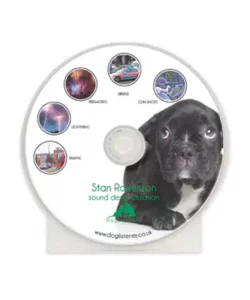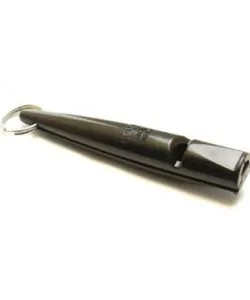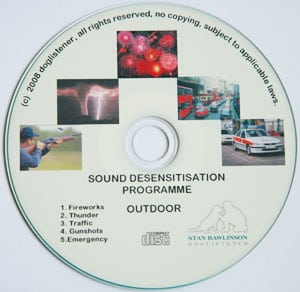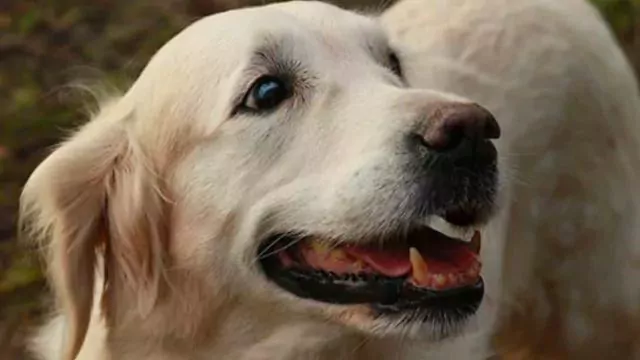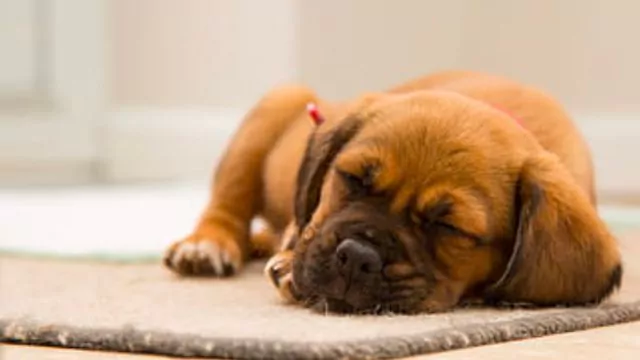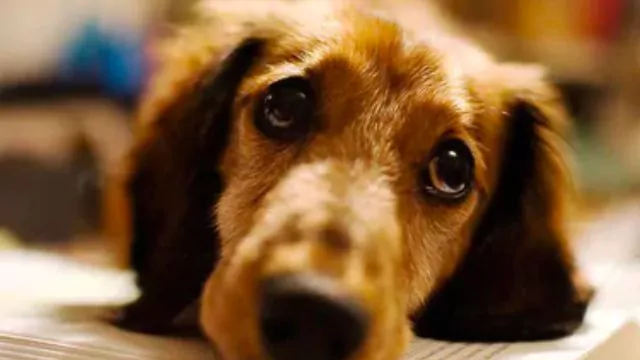Preparing For The New Puppy
Stan Rawlinson explains what to do with The New Puppy. Sleeping, Training, Socialisation and Puppy Classes London Middlesex Surrey
Preparation, Training, and Socialisation For Your New Puppy

You obviously need to consider whether you can afford the time and patience to dedicate to a pup before purchasing one.
Having done this, you will no doubt find the task of puppy care involving and very rewarding.
Most breeders agree to release their pups at around 8 weeks old. I personally believe the best time is seven weeks and science would now agree with me.
Be aware that the pup is not going to have been away from its littermates and mother before then,
Be prepared for some initial nerves and fear, both when travelling back and when you get home.
Check on the food the breeder is feeding, buy a crate and if possible a playpen before getting the puppy. I sell both the crates and playpens and they are the only British made ones available,
If you want to change the food do it gradually over a 7 day period. Do not change immediately or the dog may get an upset stomach.
Buy bowls for food and water and a (1) Choosing the Best Lead and Collar. which is first on Google. It is also worth reading that article because it explains why harnesses, extendable leads and haltis are bad for your dog if used daily walks.
May I also suggest you buy a good whistle or even two if you have a partner. In fact, I believe the lead, collar and whistle are the most important items for any puppy so choose wisely and after research Start really early with the whistle training and follow my puppy recall article, then you should have no problems later on in life, See my article (3) Whistle and Recall Training Puppies which is also first on Google.
Helpful Hints: It is extremely helpful if you wear a tee-shirt overnight and either take it or post it to the breeder unwashed, ask them to put it in the nesting box. so that the puppies will recognise your smell. Puppies and adult dogs have a scent memory. Therefore, it will feel far more relaxed and comfortable when you take it home. It will be like you have lived in the breeder’s house for the last 7 days so you will be a member of the family and not a threat
Your scent will be very familiar allowing the puppy to bond easily and quickly with you and your family. .Take the tee-shirt home with you, It will also have the litter and mothers smell., Which will help to provide further comfort and security in the first weeks at home. Check with other dog owners as to the best Vet in your area.
When you pick up the new puppy take a cardboard box with you and line it with newspaper. Take spare newspapers with you as the pup may be sick and may urinate and defecate on the journey, especially if it is any distance. If possible take someone with you and put the cardboard box on either your lap or the helpers
Do not put the cardboard box in the back of a car or away from you. This will probably be the puppies first journey, and the first time it has been separated from the litter and the breeders family. As long as someone is close to the puppy that will help overcome travel sickness and anxiety.
If you cannot get a helper, put the cardboard box on the front seat with a safety belt around it, so you keep the puppy as close to you as possible. Talk to the puppy and if possible gently handle it, even if it means stopping the car occasionally. This is an important journey and getting this wrong can cause lifelong car sickness and fear of journeys in vehicles.
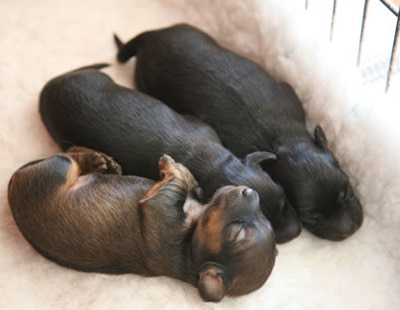
Dog Crates: When you get home place the bed or crate near somewhere warm, if you are using a crate, I heartily endorse them I now sell these crates.
I only ever use good quality crates I will not buy inferior crates as they can collapse, rust and become a danger to your pup. See my range of (5) Dog Crates
Cover the crate with a blanket or sheet to make it more den-like introduce the puppy to the crate gradually and positively, DO NOT SHUT the crate door overnight until about twelve weeks old. see my article on (6) Toilet Training
The First Nights: If you have a loud ticking clock put this near the bed or crate. the tick of the clock mimics the mother’s heartbeats.
Leave a radio on in another room, make sure it is tuned into a talk, not a music station. talk radio is my favourite and the one I choose every time. Not sure about what the pup thinks, though?
If the puppy continues to get very distressed after a couple of days you can take it into your bedroom, although I would only normally advise this when using a crate/indoor kennel, as you can gradually move this back to the original location gradually over a period of time, once the puppy has settled in. See Puppy Crying at Night.
Pups will normally be on four meals a day consisting of an early morning feed, midday, afternoon, and evening feed. until twelve weeks, then three meals afterwards dropping out the afternoon feed This does not always fit in with everyone’s lifestyle but it will only be for a short time and any drastic change to the pup’s routine will only help to upset it more. You MUST make time for the pup. As the pup reaches 8 weeks it will be ready for its first vaccinations.
Never delay these, it is vital that your dogs are vaccinated as early as possible. This then allows lots of time for that vital socialisation period before 16 weeks. Some vets vary as to what age they will administer the first jab, so it is a good idea to contact your vet even before you purchase the puppy. The vet will give your pup a general examination of health on your first visit. After the second jab is given, your pup will be ready to see the big wide world it is about to grow up in
Important Information
Remember to get your new puppy used to leads and collars well before they are allowed to go out. I see many dogs struggling with a collar and lead when they first go out because they have not been acclimatised to them before this time.
I sell what I believe are the very best collars and leads for puppies and adult dogs. They are manufactured specifically for me and you cannot buy them anywhere else. Made from cushion web they are soft on the puppy and your hands. See (7) Leads and Collars
Exercise
It is EXTREMELY important not to exercise your pup too often during the crucial developing period between three to eight months. Too much exercise will stop the pups bones from forming properly and may cause the dog problems such as cruciate ligament and arthritis in later life.

This is not to say you should not exercise the pup at all. You will tend to find pups will give themselves plenty of exercise themselves by just playing.
I do not recommend allowing the pup upstairs, as this can cause stress on the bone between the wrist and elbow/knee causing the bone to push over the joint.
This is often called over-run and is caused when the dog is run too much outdoors or is allowed to come downstairs, going up is fine.
The forward motion of coming down the stairs puts pressure on those front paws, as the weight is transferred forward, pushing the soft bone up and over the joint.
This can cause a number of problems including early-onset arthritis.
Ground Rules: Your pup will be learning from the very second it sets foot in your home, so it is a good idea to lay the ground rules down as soon as your pup arrives. Puppy training should not be a succession of corrections, It should all be done in the spirit of puppy play, firm but fair.
The way your puppy develops into an adult depends on a great deal of how it is guided through its formative early months as a juvenile, by you, it’s the owner. The three most important tenets to remember throughout the life of any dog is consistency, consistency and consistency. Whether it a puppy or an adult. See my article (8) Critical Periods
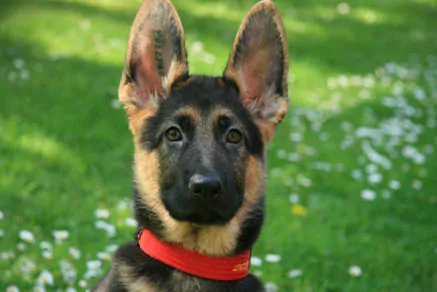
Rules In The Home: You should initially decide on the rules before bringing your puppy home for the first time.
Where do you intend to put the pup’s bed? Where will he/she stay when you have to go out without it. What times will you feed him?
Will he be allowed on the bed or furniture? How will you toilet train? Paper, Crate, or Observation? Decide on your methods and read up as much as possible about the breed and its temperament.
Visualise your expectations but remember, though it grows mentally and physically much faster than a human child, it is still only a puppy. Your responses to the pup’s behaviour should always take this into account.
My personal belief is your puppy should not be allowed on furniture at this or any other time. Dogs don’t understand occasionally, only yes and no. However, if you must, only let them on at your command and they must immediately get off when you say so, you have to be firm but fair on this point.
Whatever you decide, always apply the rules from the very start and stick to them. Consistency is the key.
Feeding your Puppy: There are currently more foods available for dogs and puppies than you can shake a stick at. Some good, some bad some indifferent and some downright dangerous. I have written an article on (9) Dog Food and Behaviour and (10) Bakers and Pedigree

All my dogs and puppies are being fed on Fish4Dogs because I trust the food and my dogs love it. They stock a variety of treats and kibble, their treats are also excellent. You cannot buy Fish4Dogs in the normal supermarkets and that includes the pet supermarkets.
Fish4Dogs does not have the levels of preservatives that would allow it to be stored for many years in warehouses, which is required for most supermarket food. You can contact Fish4Dogs for a list of stockist’s and most of the smaller pet shops will stock this brand as it is becoming very popular. Fish4Dogs will also post out to you free of charge. Click on the logo to go to the Site
Final Thoughts: Expose your puppy to as much as possible; other animals, visitors, children, travelling, hoovering, bangs, clatters, in other words, everyday life. Remember they are dogs, not children treat them as the pack animal they are, and you will find them far more responsive. I meet many dogs and puppies that have major problems with various sounds from Thunder to Traffic Noise, Fireworks and Gunshots.
I have created a sound audio disc that covers all the main phobias, such as thunder, sirens, fireworks, traffic noises, (including lorries and buses and air brakes) and gunshots.
Introduce these type of sounds very quietly and gently to young pups then gradually increase the volume over a few days to a week. If young pups are gently desensitised at a very early age, then they normally do not get these problems.
This will allow the pup who may not be able to go out because of vaccinations to be introduced carefully, to all the scary sounds he or she will be exposed to when they are able to be taken out into the big wide world. Prevention is always better than cure. The cost of this disc is only £9.00 plus P&P. I believe it is worth its weight in gold and comes with full instructions on how to introduce it to a puppy, and how to use it on a dog already suffering from noise sensitivity.
Click on the disc to buy it, or for further information. Your Puppy is not a toy to be picked up or dragged around or constantly bothered by children and adults. Give your puppy some time out and respect, it will return it tenfold.
Puppy Classes:
Book your dog into some good puppy socialisation classes. These are my (11) Puppy Classes. If you are not in my area then read what I believe a well-run puppy class should offer you. Classes at the earliest time you can take them is the most important classes you will ever give your dog. Mine are available for pupp[ies who are eight weeks and over and have had the first vaccination.
It is at these classes, that they learn to communicate with other dogs, this is invaluable for harmony with other dogs in later life. The language is learned by playing with puppies of a similar age. Not From Other Adult Dogs. It is important that you understand that concept, as most inter-dog aggression is caused by not allowing our young puppies to meet lots of people, children and other pups at this vital age. Book your classes early, do try and book at the last minute and they will be full up and your puppy will suffer because of your lack of foresight.
Before you buy any dog make sure you are not just buying it because you like the look of it. Analyse your working and household arrangements, do you want a “guard dog” or lapdog? how much exercise will that lovely Collie or Springer need? do I have space for that Irish Wolfhound? are some breeds more aggressive than others?
Think long and hard before you commit yourself to anything. Preparation and Consistency are vital. Read my article (12) The Alpha Myth it will open your eyes to the problems we have with our old fashioned training methods and will set you up yo succeed with your puppy. Remember your dog depending on size and breed can live from ten to twenty years. If they are not socialised early then it may just turn out to be a nightmare. We all know a dog is for life not just for Xmas, but it is also not for any other time of the year if you are just buying on impulse.
Having said that a dog is a joy, a companion that cannot be equalled, it will become an integral part of your family and your entire life. Your whole perspective will change, and sometimes despite your behaviour, it will adore, love and cherish you like nothing else on Earth. What is God spelt backwards? it’s Dog.
©Stan Rawlinson
Dog Behaviourist and Obedience Trainer
Owner of The Dog Store Hampton Hill
(1) Lead and Collar.
(2) Whistle
(4) Local Links
(5) Dog Crates
(6) Toilet Training
(8) Critical Periods



